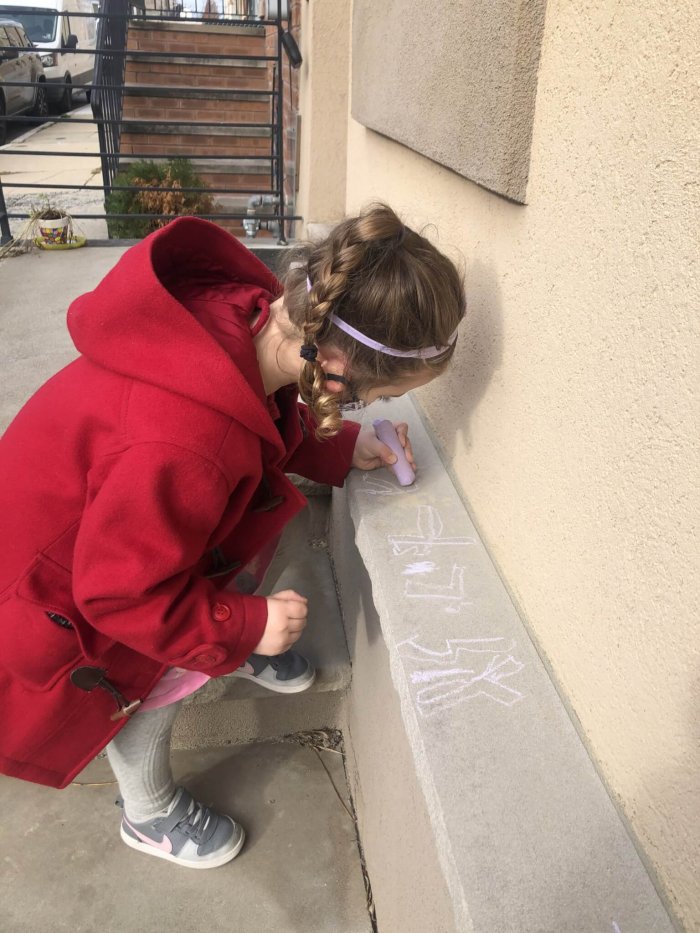
How do we navigate conflict peacefully and productively? Over the next few months, we’ll explore some of the resources available in Torah to help us answer this question. To start off our second curriculum unit of the school year, we jumped back in the Torah text timeline to Bereshit (Genesis) 25. There, we meet Yitzchak and Rivkah, who desperately want children. God hears Yitzchak’s pleading, and Rivkah becomes pregnant with twins. Their difficulties don’t end there, though. Rivkah feels like the growing babies are fighting inside her, causing her so much pain that she cries out to God, “If so, why do I exist?” God tells her that two nations are growing inside her, and they are not destined to get along on equal footing.
Here are some questions the Garinim (preK and K kiddos) had about the story:
- Why does one of them have to be stronger? Why can’t they be equal?
- Why will the older one work for the younger one? Shouldn’t it be the other way around?
- Why can people in Torah stories have conversations with God? Like where God answers? You can talk to God now, but God doesn’t answer with words like in Torah stories.
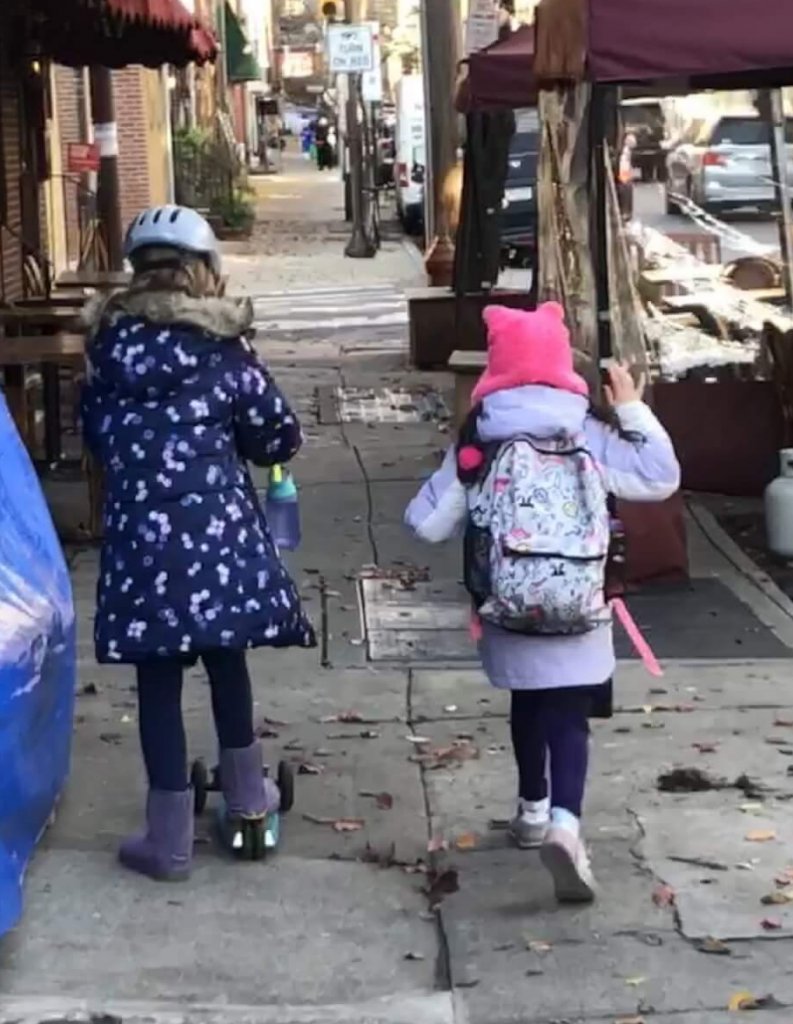
The Shorashim (1st and 2nd graders) explored what this experience might have been like for Rivkah. We imagined that she had some pretty conflicting emotions about her pregnancy:
- Happy and stressed
- In pain
- Why did she even want a baby?
- I think she is happy-ish because she will get them but sad because it might hurt
- She is happy and sad
- She was sad happy and felt weird because she couldn’t take it anymore
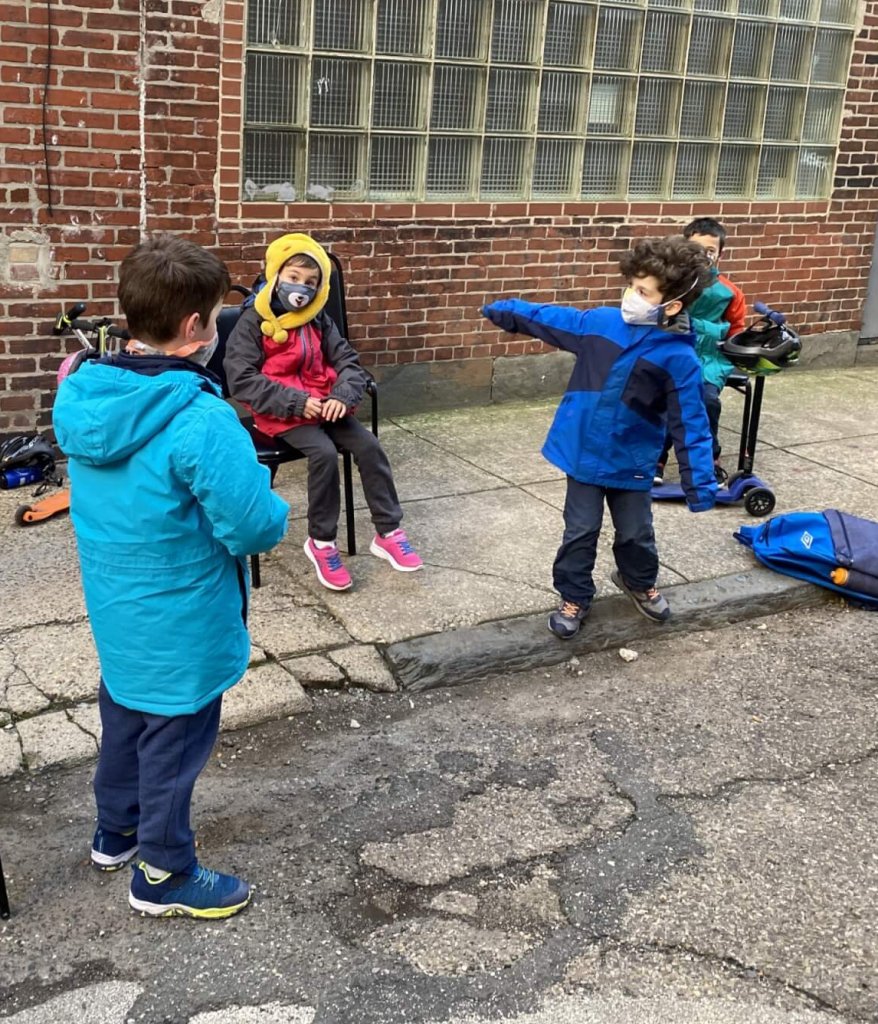
The Nitzanim (3rd and 4th graders) grappled with this question too. How do you think Rivkah felt about her twins fighting before they were even born?
- Not so good. It would probably hurt a little bit. When you’re a parent you probably want your kids to get along.
- It probably hurt, what if they missed and hit something else?
- Rivkah might have been made at God. God made her pregnant and maybe she didn’t want to be. She already didn’t want kids and now they’re fighting.
- I think God did this on purpose to sit back and watch and eat popcorn.
- Did Rivkah even want to be pregnant?
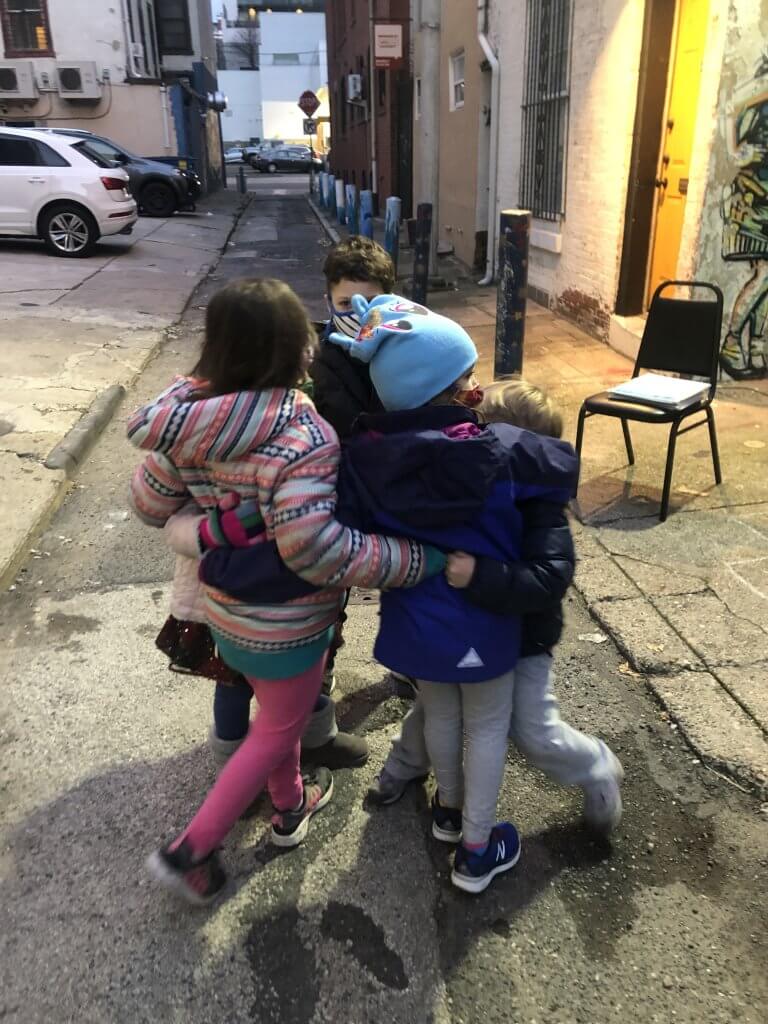
Rivkah wanted kids, but she didn’t want to have a painful, difficult pregnancy. Unfortunately for her, those two things went hand in hand – she couldn’t have one without the other. Can you think of a time when you wanted two things that opposed or conflicted with each other? The Garinim said:
- I want to be able to take my mask off for school, but I also want to be in person for school, so I can’t do that.
- I want to have fun on a vacation somewhere else, but I don’t want to take a long car ride to get there.
- I want to go into stores, but I also want to be as safe as possible about the coronavirus.
- Sometimes I want dinner in general, but I don’t want the dinner that’s available and there aren’t other options.
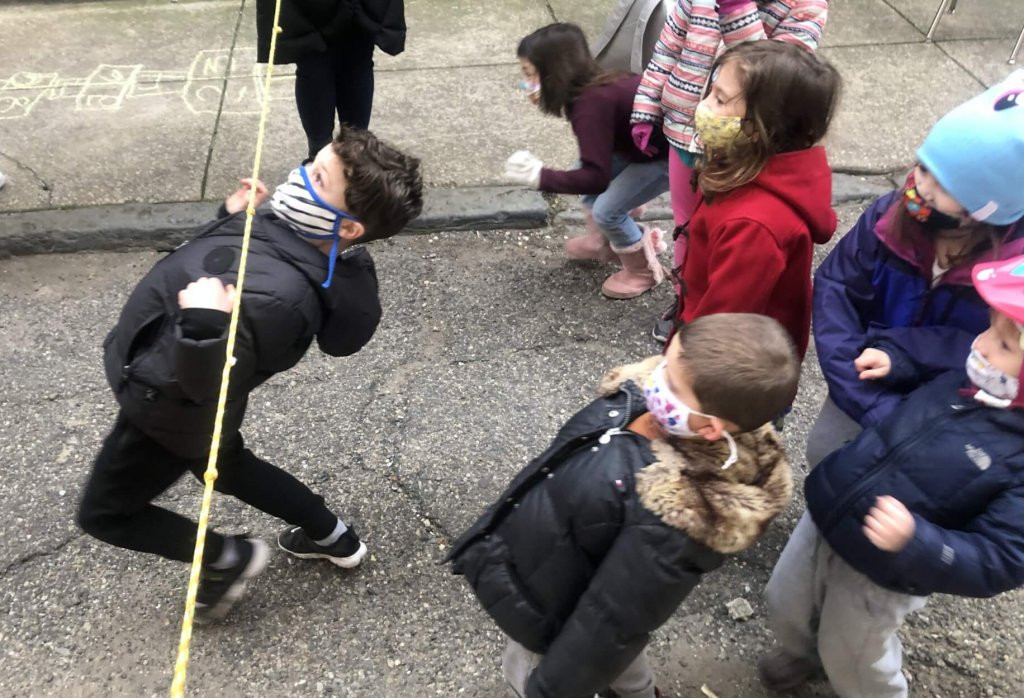
The Garinim unpacked why Yitzchak was the one to ask God to help Rivkah become pregnant. His care for her led him to intervene. If a conflict doesn’t directly involve us, how do we know whether or how to be involved?
- If other people have too big feelings getting in the way of having a conversation or making a good choice you should help or ask for help for them.
- Wait to give them some time to resolve the fight on their own and then help if after like 10 minutes they’re still fighting.
- If it’s a big problem (like a lot of kids not being safe with their hands and feet) then even if it’s not about you you should help. If it’s a small problem (like two kids not wanting to go to the same place to do something) then you can just let them figure it out or suggest a way for them to figure it out by themselves (like tell them to play rock-paper-scissors or something.)
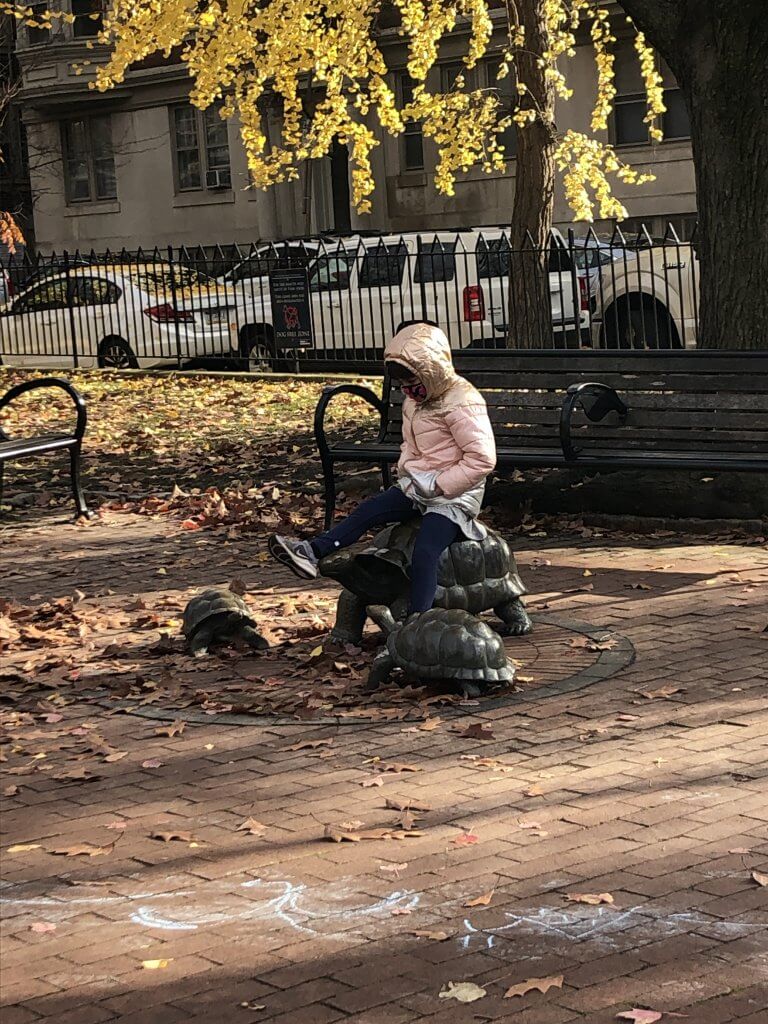
We all agreed that this situation was really hard for Rivkah! It was something she wanted more than anything else but it ended up being incredibly challenging. If the Shorashim were magically plopped into the Torah, here is what they would do to help:
- I would also ask God to help
- Say “you can push through it!”
- Tell her it will all be ok
- Help her feel calm
Phew – what a way to start out this unit! We can’t wait to apply our learning from our last unit, Working for Tzedek (Justice), to our new focus on Peace and Conflict. Tune in next week to find out what insight we can draw from the next part of the story!
